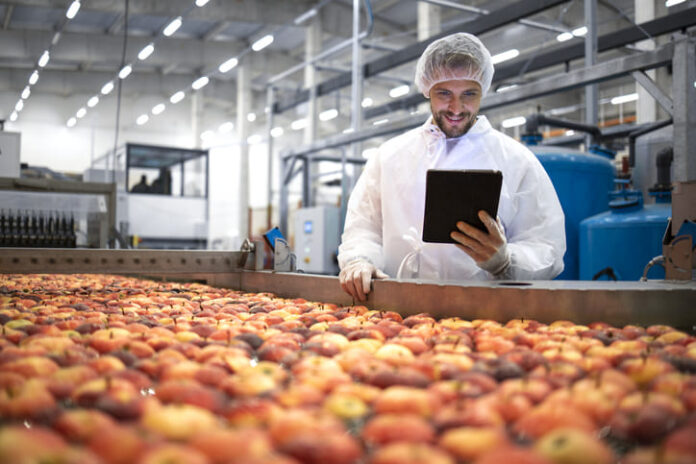Starting a food business with global ambitions sounds exciting, right? You’ve got the perfect recipe, but taking it from a local hit to a worldwide sensation is a whole different game. The food industry is dynamic, with a lot of moving pieces, from sourcing ingredients to handling logistics. If you’re looking to build a food brand that resonates across borders, there are several key factors to consider. Let’s dive into what it really takes to make your food business a global success story.
Know Your Market Like the Back of Your Hand
If you want your product to thrive in different countries, you need to understand the unique preferences of each market. Food isn’t just about taste—it’s about culture, lifestyle, and even local regulations. What works in New York may not fly in Tokyo, and a hit in Paris could flop in Sydney. Before you launch in a new region, immerse yourself in the culture. Get to know the local flavors, food trends, and eating habits. For instance, veganism might be booming in some places, while other regions are more focused on traditional, meat-heavy diets.
You also need to navigate the legal landscape of food regulations, which can be a maze. What’s allowed in the U.S. might not be okay in Europe, and packaging standards in one country could be completely different from another. Understanding these regulations isn’t just a nice-to-have; it’s a must-do if you want to avoid expensive setbacks.
So, when thinking globally, always start by doing your homework on the local market.
Perfect Your Supply Chain
Scaling a food business means thinking big about your supply chain. You’re no longer dealing with just local vendors; now, you’re working across time zones and borders. Managing suppliers, ensuring ingredient quality, and navigating international logistics are just a few of the challenges that come with expanding globally.
Let’s say you’re ready to mass-produce and need to partner with manufacturers. The process isn’t as simple as finding the nearest one. You’ll need a network that can support your scaling goals. For instance, say you’re trying to find aluminum can manufacturers for private labeling—it’s crucial to partner with reliable suppliers who can meet your production demands while maintaining your brand’s quality standards.
Consider what it takes to maintain consistency. If someone in France loves your product, they should have the same experience when they buy it in Brazil. The key to success here is maintaining quality control so your brand remains consistent, no matter where it’s sold. Building a robust supply chain might sound like a tough challenge, but it’s the backbone of a global food business.
Invest in the Right Tech
Technology is the secret sauce that can take your food business from local fame to international stardom. To scale globally, efficiency is non-negotiable, and investing in the right tech can help you do just that.
Enter the world of small-scale food processing technology. These innovations can revolutionize how you produce, package, and distribute your products. Whether it’s automated production lines or advanced packaging tech that extends shelf life, leveraging technology will help you meet the demands of different markets while keeping costs down.
Beyond production, technology can also enhance your distribution efforts. Think about how tech tools can streamline everything from tracking inventory across continents to optimizing shipping routes. The more efficiently you can move your product, the more competitive you’ll be in a crowded global market.
If you’re serious about scaling, start thinking about the technology you need to help your business grow. It’s an investment, but it will pay off in the long run.
Branding with a Global Mindset
Your brand needs to be able to transcend cultural barriers, but that doesn’t mean taking a one-size-fits-all approach. Building a global brand is all about finding the balance between consistency and local adaptation.
Consider how iconic global brands have made their mark. They maintain a core identity but adjust their messaging and branding to fit the local market. What might be a fun, bold campaign in the U.S. could need a more understated tone in Asia. Don’t just translate your marketing materials—localize them. Understand the local humor, slang, and even color symbolism, as these small details can make or break your brand in a new region.
Packaging, too, plays a role in your global branding efforts. Different countries may have different sustainability standards, so being mindful of eco-friendly packaging options could win you more consumers. And, of course, the product itself should have universal appeal but the flexibility to be tweaked for local tastes.
By approaching branding with a global mindset, you’re setting your business up for long-term success in multiple markets.
Stay Flexible and Keep Learning
Taking a food business global is no small feat, but it’s achievable with the right mindset and strategy. Flexibility is key. You need to be willing to adapt, whether that’s adjusting your product to fit local preferences or changing your approach based on new regulations.
Most importantly, stay curious and keep learning. The global food market is constantly evolving, and what worked last year might not work next year. Stay ahead of trends, listen to your customers, and be ready to pivot when needed.
With the right foundation in place—understanding your market, perfecting your supply chain, leveraging technology, and branding with intention—you’re well on your way to turning your local food business into a global powerhouse.









